Chinook salmon: King of salmon. Its meat was valued more than gold, and its caviar was the largest among salmon (8 photos)
“Chinook salmon chomping chevapchichami” - such a tongue twister with the name of our today’s heroine can be read at leisure to improve diction. But this is not the only thing that fish is useful for. After all, chinook salmon is not only a funny name, but also 20-40 kilograms of dietary, easily digestible meat, as well as a storehouse of delicious red caviar. Meet Her Majesty, the queen of all game fish! 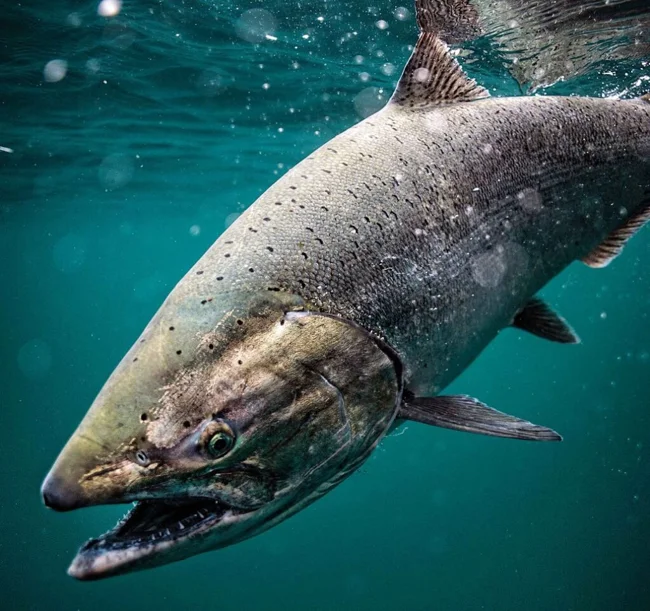
This is one of the largest salmon: the average Chinook reaches a meter in length, and the largest specimens grow twice as large and weigh more than 50 kilograms. Externally, chinook salmon is not very different from other salmon fish: silvery, with black specks on the back. Only an ichthyologist can recognize the characteristic features. In addition to size, the fish has two of them - black “gums” on the lower jaw and a large number of gill rays (from 15 to 19 - for comparison: other salmon have about 10). 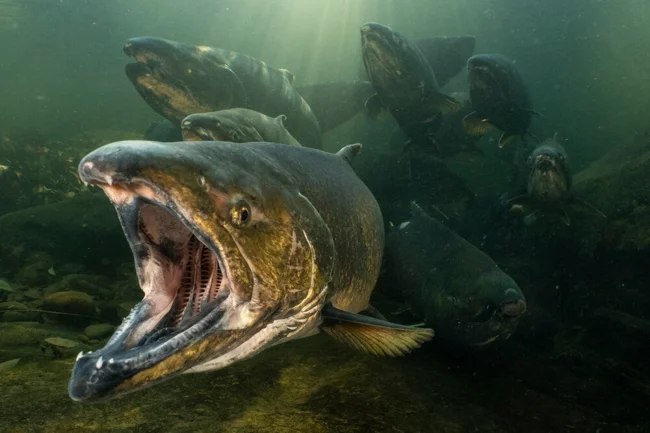
Thanks for showing us your gums. Now we know for sure that you are a Chinook salmon.
During the spawning period, male Chinook salmon become brutal, bold, sharp as a bullet: their body darkens, turns red, their fangs grow, and their muzzle acquires brutal features. Females, at the sight of such macho men, also blush, but apart from this they hardly change in appearance. 
By the way, Chinook salmon meat is always raspberry-red. It is fatty (about 8 grams - 11-13%), tender and deliciously tasty. In addition, it is rich in vitamins A, C, E, K and is saturated with valuable micro- (zinc, manganese, iron, selenium, copper) and macroelements (calcium, magnesium, sodium, potassium, phosphorus). In terms of benefits for the body, Chinook meat is unrivaled among other types of salmon fish. But caviar is especially prized among gourmets - it is the largest of all salmon. Its taste is expressive, delicate, with a slight spiciness without bitterness. Are you already drooling? 
By nature, the Chinook salmon is one of those who do not close the window even in winter - it does not tolerate a warm environment, therefore it lives exclusively in cold seas. But in the north, fish have spread everywhere. That’s why Chinook salmon are deservedly praised all over the world! 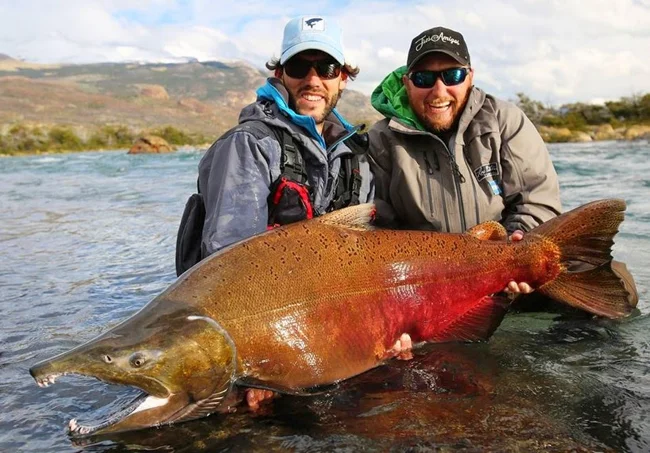
In different parts of the Earth, our heroine is called “royal” titles: in America she is called King Salmon, the Japanese called her the “Prince of Salmon”, and in Kamchatka the chinook salmon was nicknamed “the king fish”. Many northern peoples had legends about the “king fish,” and its meat was valued even more than gold. 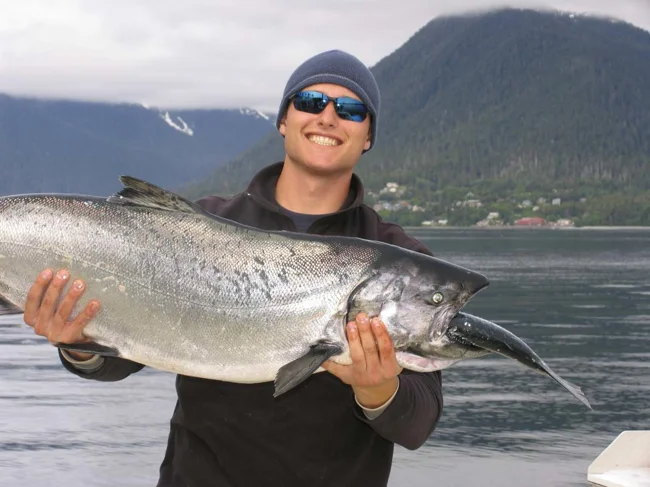
But even the harsh northern fish are no strangers to tender feelings. The breeding season for Chinook salmon begins in the summer. The “Prince of Salmon” is an anadromous type of fish; for spawning it migrates from the sea to fresh water bodies. Like any person of blue blood, Chinook salmon is a finicky fish - it’s hard to please.
The whimsical mamzel does not want to breed anywhere: in search of a suitable place for spawning, it can climb rivers over enormous distances, up to 4000 kilometers. With its powerful chest, the Chinook salmon overcomes the most turbulent currents, and with its powerful tail, it knocks out a place for eggs in large cobblestones. 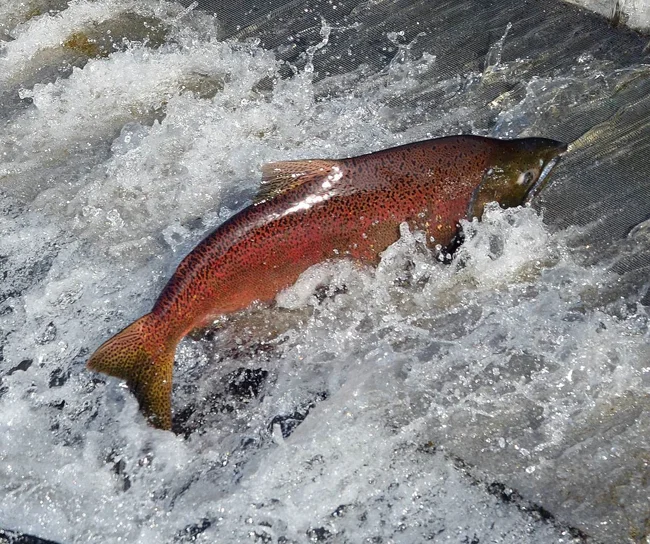
Chinook salmon pay a high price for their strength and tenacity. Immediately after fertilization, exhausted males die: their digestive system fails, they lose their appetite. They swim listlessly for a while and soon glue their flippers together. After laying eggs, the females also die. Nature came up with such an uncompromising mechanism so that adult fish do not compete with young fish for survival. This way, parents will not “eat up” their own children. This is someone who was really created only for procreation! 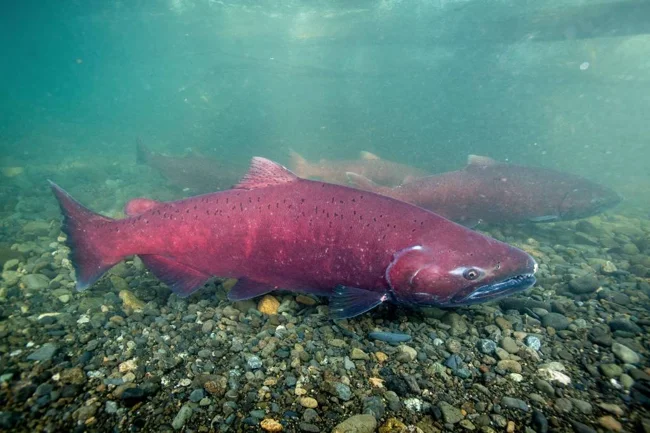
After some time, the eggs will hatch into fry. They will need from 3 months to two years to gain strength for adulthood - after which the grown fish goes to sea. Years later, the chinook salmon will return to the place of their birth to repeat their harsh life cycle and, having died, give birth to a new generation of the king of salmon.
